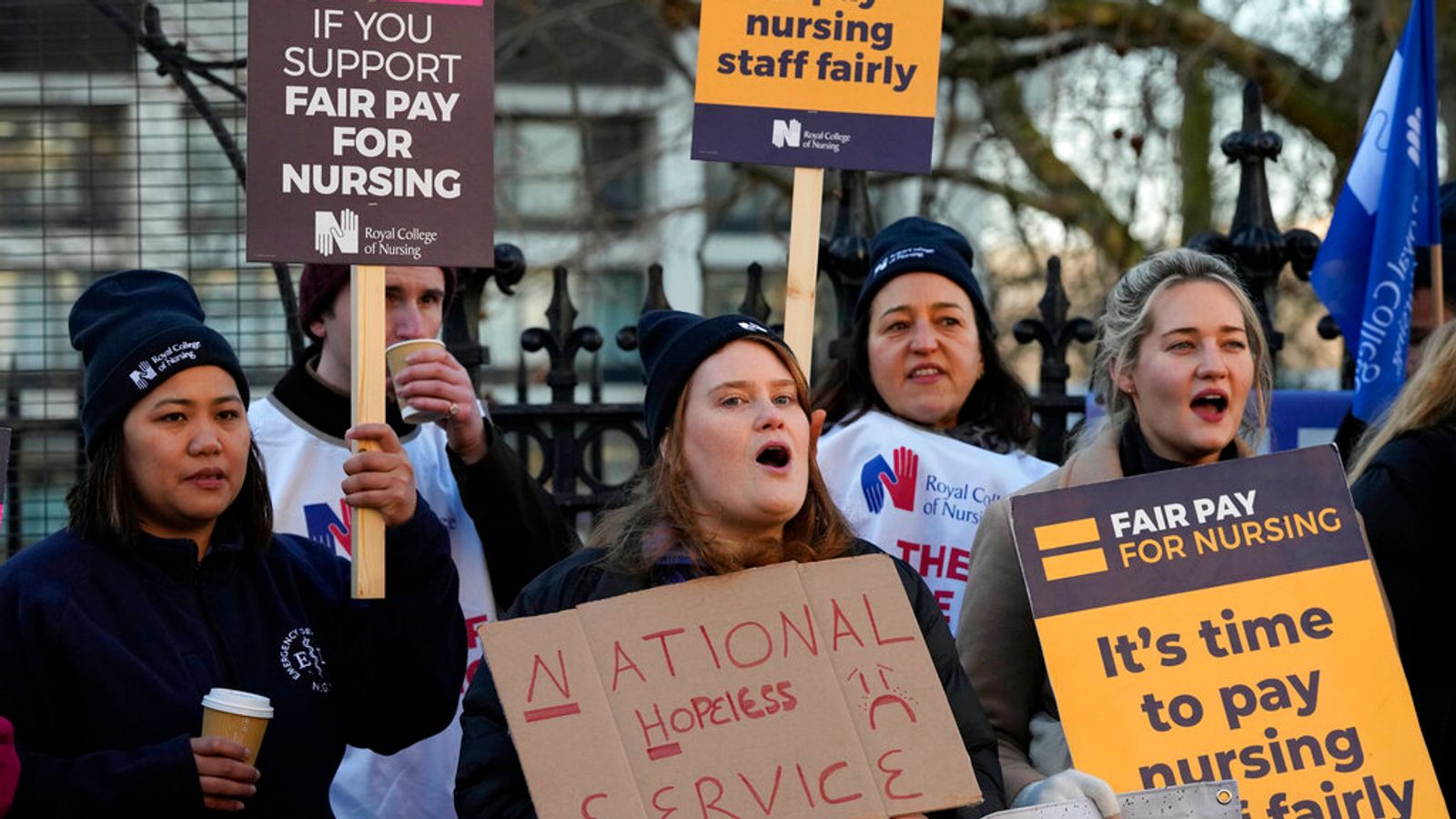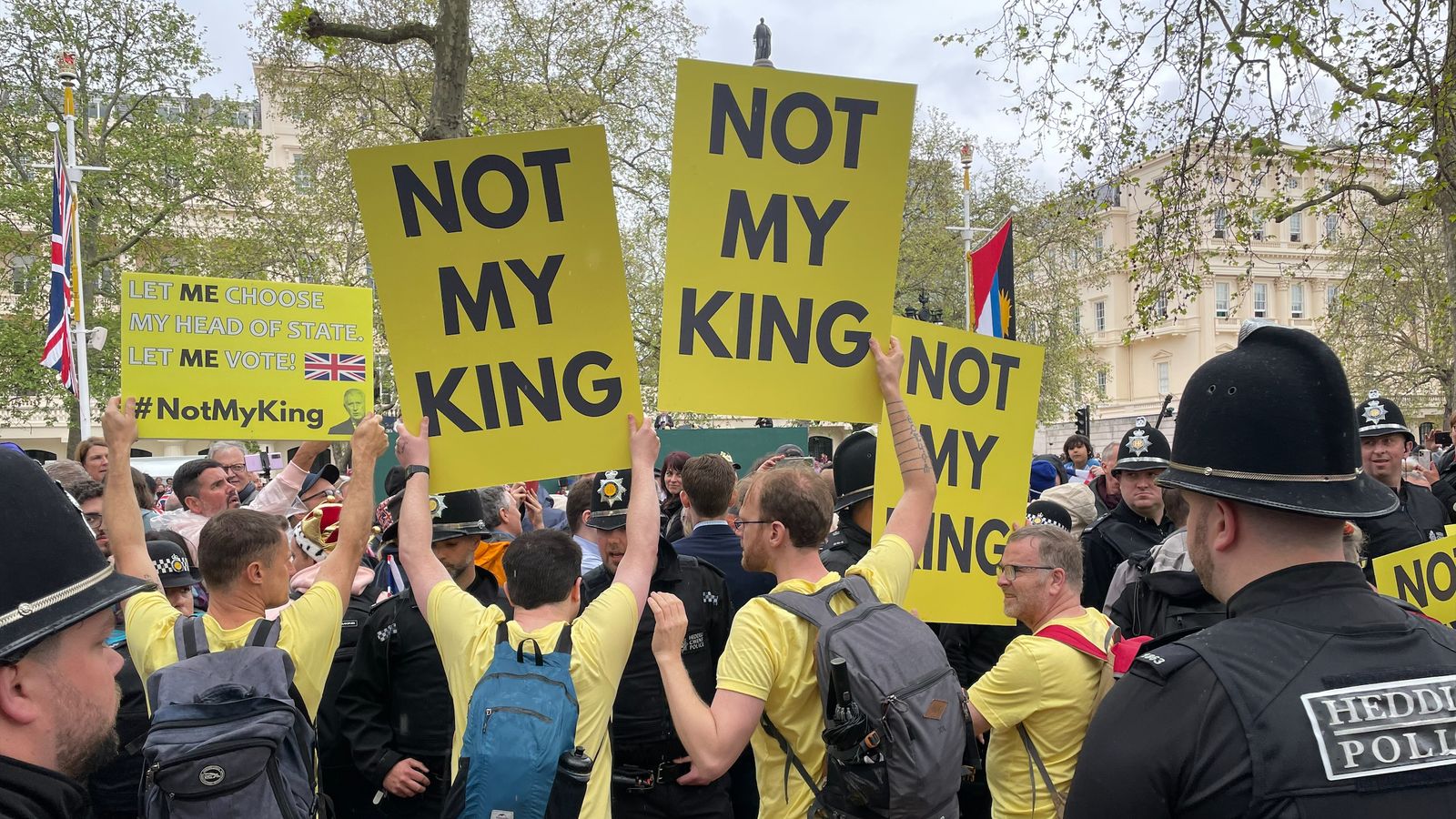Hospitals are bracing themselves for “exceptionally low” staff numbers in some regions as nurses prepare to go on strike over the bank holiday weekend, NHS England has warned.
The latest walkout comes as the health service warns that, due to nearly six months of strike action, the number of rescheduled appointments is set to hit half a million next week.
The bank holiday strike by members of the Royal College of Nursing union will take place from 8pm on Sunday to 11.59pm on Monday.
It will be the latest action by nurses in a long-running dispute over pay and conditions.
Nurses make up a quarter of NHS staff and are the biggest proportion of the health service workforce. They are seeking a pay rise that is 5% above inflation.
The RCN says nurses’ salaries have consistently fallen below inflation – with the consequences now worsened by the cost of living crisis.
During the strike action, the union said it will not agree to derogations (areas of care where unions agree to provide staffing during industrial action), meaning nurses in intensive care, A&E and cancer care will be on the picket line.
However, in a new development, the RCN has agreed with NHS England that nurses may offer “safety critical mitigations” in some emergencies to “maintain safe patient care”.
NHS England said the health service and RCN “are seeking to agree mitigations on an organisation by organisation basis if there is a critical risk to patient safety”.
But it warned that staffing levels for some areas of the country will be “exceptionally low, lower than on previous strike days”.
Meanwhile, Great Ormond Street Hospital’s chief executive Mat Shaw has said he is “incredibly grateful” to staff and the RCN for “granting safety exemptions” during the strike.
The world-renowned children’s hospital had earlier declared a business continuity incident due to “serious concerns over safely staffing the hospital” throughout the walkout.
It said on its website some children may need to be sent home in order to care for those who remain to be safe.
Read more:
More teacher strikes loom
GMB votes to accept NHS pay offer after Unite rejection
Hundreds of Heathrow staff to strike in May
Original strike plan deemed unlawful
Nurses are set to strike this weekend after a High Court judge ruled on Thursday it would be unlawful for the strike to continue into Tuesday as originally planned.
Health Secretary Steve Barclay secured the court’s interim declaration after bringing legal action against part of the trade union’s proposed walkout.
Meanwhile, NHS England is urging the public to use the health service wisely as hospitals prepare to cope with the bank holiday weekend.
It said emergency and urgent care would remain the priority, with people asked to use other services such as pharmacies and 111 where possible.
Unions encouraged to accept pay offer
The latest action comes as health unions are split over whether to accept a 5% pay offer from the government.
The NHS Staff Council – made up of health unions, employers and government representatives – is meeting on Tuesday to discuss the offer.
Please use Chrome browser for a more accessible video player
Matthew Taylor, chief executive of the NHS Confederation which represents organisations that commission and provide services for the health service, told Sky News: “There is a danger, there is a concern that unions who haven’t accepted the deal might split off.
“We would very much encourage them not to do so. I think it’s extremely important for NHS staff to stick together.”
He continued: “We hope that if the staff council accepts this (pay offer), then all the unions will accept it.
“But I think it’s really important to say that that doesn’t mean that we as leaders of the health service don’t recognise the real concerns amongst staff that their pay has fallen.
“I talk to NHS all the time and many of them say to me they’ve never known at a time when they’re more concerned about staff morale, we see it’s very hard to retain staff in the health service.
“We recruit staff reasonably well, but too many of them leave because they find the pressures of the job very difficult. So the issues that lie behind the strike, issues of recruitment, of retention, of motivation, they will continue to be there and we need to address those questions.”






